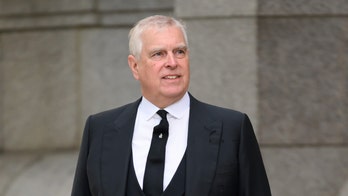“It’s not just about the Police.”
Guitarist Andy Summers is talking about his new documentary, “Can’t Stand Losing You: Surviving the Police,” out Friday and based on his 2006 memoir, “One Train Later.”
The film’s poster features a picture of Summers and the other two members of the Police, one of the most successful rock bands of all time, and the promotional material says the film “tells of the rise of the Police.”
Yet Summers bristles at the notion the film is just about the band.
“It deals with my life before the Police [also],” he tells The Post.
The film does indeed tackle other topics — including his marriage (he and wife Kate divorced in the ’80s, then remarried later), and his time before that as a respected guitarist who made the short list to join the Rolling Stones when Mick Taylor left that band.
But his defensiveness is not atypical for a musician from a successful group with a charismatic leader; it’s a virtual scream of, “I’m in the Police too, it’s not just Sting!”
The band formed in London in 1977, and Sting became the focus for media and fans early on. Summers notes in the film that the singer’s “moody arrogance” made him perfect fodder for the star-making machine: “This attention to our singer does cause friction.”
As Summers tells The Post, “Look, he was a very good-looking guy with a great voice, and he’d strip off onstage. We were dripping with No. 1 records . . . It’s a classic story — the lead singer starts to get more attention because he’s the guy actually singing, and of course there’s that ego that goes with it, and control issues.”
Sting’s independence was already notable by the recording of the 1980 Police album “Zenyattà Mondatta.”
“He’s not a team player, doesn’t share credits, and makes comments in the press to that effect,” Summers says in the film.
When Summers brought in an instrumental song called “Behind My Camel,” Sting refused to play on it. Summers wound up recording it with drummer Stewart Copeland, playing both bass and guitar himself. At one point, Sting, “half-joking, half-serious,” hid the tapes of the song in the gardens at the back of the studio. Summers found them and finished the song, and it wound up winning the Grammy Award for Best Rock Instrumental Performance.
As Summers recalls in the doc, by 1981 “the fragile democracy has become a dictatorship, and Sting’s agenda, although veiled, is obvious. He does not want to be in a band.”
By 1986 — just a couple years after their massive hit album “Synchronicity” — the band was done. Summers has his regrets: “What we should have done was go away for a couple of years and all do solo projects.”
And if both he and Sting had had smaller egos, the band might not have reached the heights it did, Summer says.
“You have to have someone with an ego like Sting’s, or mine, or Stewart’s, to make [this sort of success] happen. Let’s say you had a guitar player that’s on fire, and a drummer that’s on fire, and a really mellow lead singer. Doesn’t quite add up, does it?”
This story first appeared in The New York Post.













































